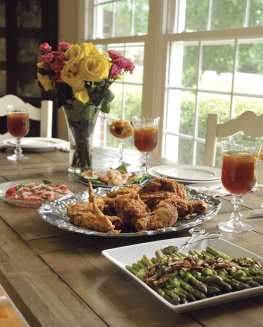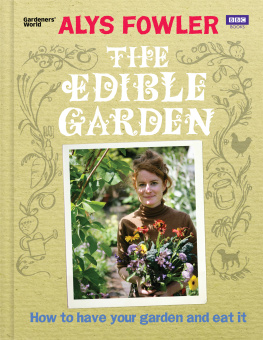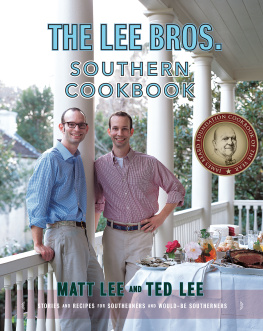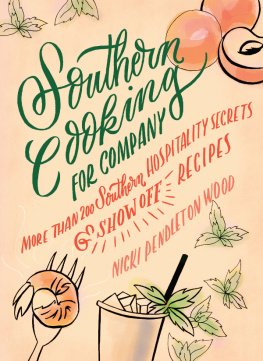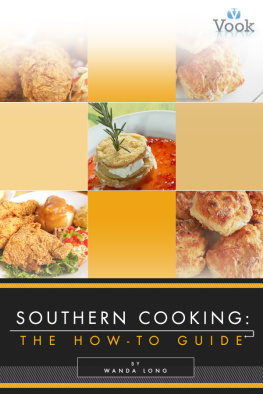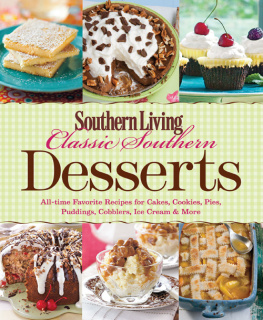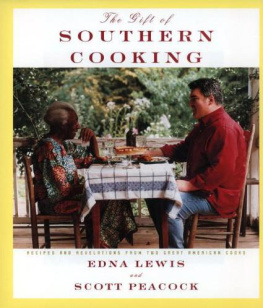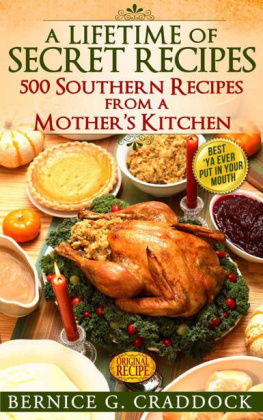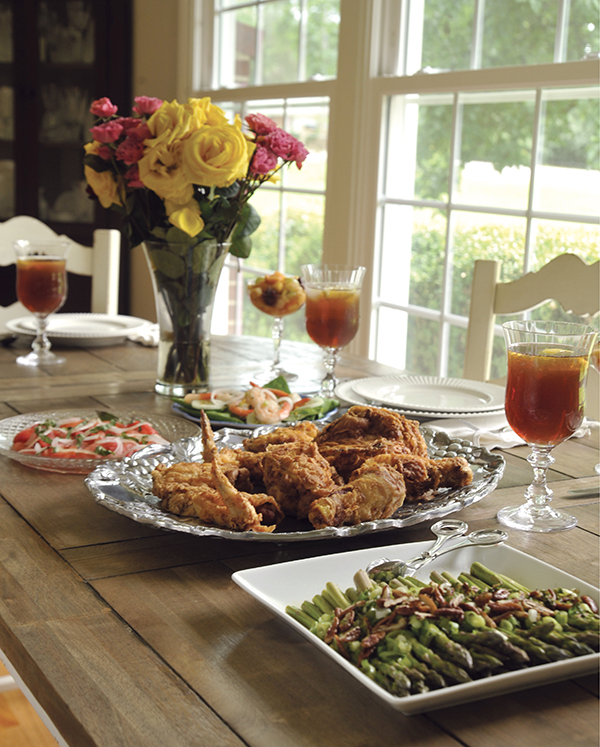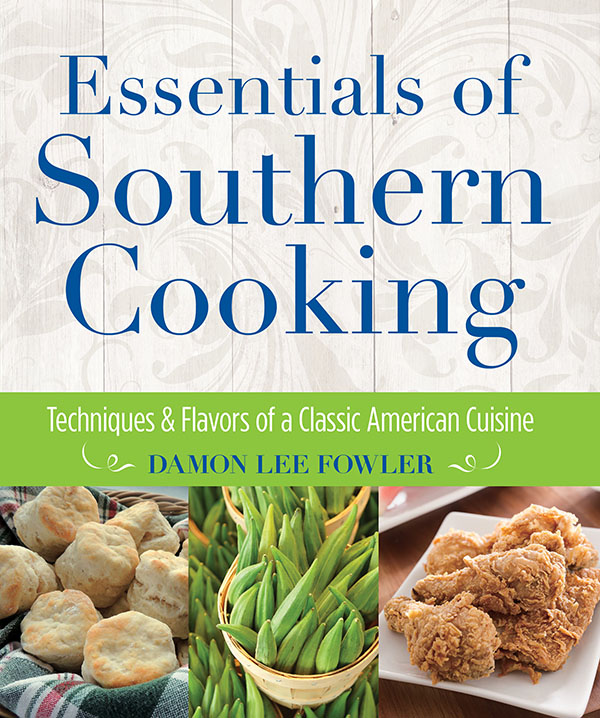
Copyright 2013 Damon Lee Fowler
ALL RIGHTS RESERVED. No part of this book may be reproduced or transmitted in any form by any means, electronic or mechanical, including photocopying and recording, or by any information storage and retrieval system, except as may be expressly permitted in writing from the publisher. Requests for permission should be addressed to Globe Pequot Press, Attn: Rights and Permissions Department, PO Box 480, Guilford, CT 06437.
Lyons Press is an imprint of Globe Pequot Press.
Recipes in this book were previously published in Damon Lee Fowlers New Southern Kitchen and Damon Lee Fowlers New Southern Baking.
Editor: Amy Lyons
Project editor: Ellen Urban
Text design and layout: Nancy Freeborn
Photography by Damon Lee Fowler: 27, 42, 51, 63, 67, 71, 85, 89, 95, 143, 145, 156, 197, 201, 208, 211, 215, 230, 240, 243, 261, 279, 387, 391. Photography by Ron Manville with styling by Sarah-Jane Bedwell: viii, 45, 54, 114, 127, 153, 175, 179, 195, 199, 214, 219, 237, 239, 247, 257, 307, 317, 346, 351, 395, 397. Photo Courtesy of John Carrington: 124. Photography Licensed by Shutterstock.com: iii, 6, 14-15, 17, 19, 21, 25, 29, 33, 35, 36, 39, 47, 49, 57, 60, 77. 82, 87, 101, 102, 106, 120, 123, 129, 135, 149, 158, 161, 163, 165, 189, 222, 225, 227, 228, 231, 233, 235, 245, 249, 250, 259, 264, 269, 271, 273, 274, 299, 301, 302, 308, 313, 323, 324, 327, 331, 333, 341, 342, 343, 345, 355, 362, 371, 378, 383, 385, 388, 402, 404, 407.
Library of Congress Cataloging-in-Publication data is available on file.
ISBN 978-0-7627-9222-1


On a cold, bleak December night that perfectly mirrored our feelings, my scattered family converged on Charleston to be with my younger brother as he faced surgery for cancer. We were all bone-tired, worried, and, needless to say, food was the last thing on our minds.
Everyone else was at a hotel, but I, unable to face what lay ahead in such an impersonal atmosphere, had called my friend and mentor Nathalie Dupree. She immediately insisted that I come and stay at the cozy Queen Street single house that she and her husband, Jack Bass, are suffered to share by Minou, the fat, lazy cat who really owns the place. They had dinner obligations and had gone out, but Nathalie promised that supper would be waiting even though she knew I didnt feel like eating.
Sure enough, her wonderfully crowded, sun-yellow kitchen was filled with the rich aroma of a still-warm casserole of shrimp and grits. The rooms bright color reminded me so much of my grandmothers kitchen from my early childhood that just sitting down at the small table by the fireplace was a comfort. With the happy jumble of a cooks kitchen added in (there were at least six pepper mills, an enormous bottle of bourbon stuffed to its neck with vanilla beans, and a china butter dish scattered amid stacks of blue enameled iron and weathered copper cookware), not to mention the unmistakable essence of a beloved friend and mentor, it was exactly where I needed to be.
As the distinctive flavor of the seasons last fresh shrimp, simply seasoned and folded into rich, creamy cheese grits, met my tongue, my appetite revived and some of the dull ache of uncertainty eased. It was not the same as having Nathalie take my hand and tell me that everything would be all right, but it was close.
My life as a writing cook has been touched by many people, and I treasure all those friendships, especially the many other Southern writers who have undertaken to champion our regional cuisine in cookbooks and other publications. But Nathalie has been the big sister I never had, a constant touchstone in my life, the colleague and friend I turn to in joy and in trouble. We dont always agree; in fact, part of what I treasure about her friendship is that she loves it when we do disagree, because that means were going to have a great time arguing and will probably both come away from it all the wiser, even (and especially) when we never find common ground. I cannot imagine my life without her, and whatever merit my work might have owes a good deal to her.
When I think back on that moment in her kitchen, and reflect on a lifetime of writing about moments like it, I realize that theres something in the times we share over food that stays with us. I remember another evening in that same kitchen, when Nathalie whipped up a batch of apples in caramel cream for a friend who had been cheated out of dessert at a banquet. I remember sitting down with my mother to a steaming bowl of vegetable soup and hot corn bread after a long, tiring drive. I remember sharing dreams, laughter, and tears over an all-the-way chili dog with fellow author Ronni Lundy. These moments leave their mark even when the food itself is not memorable: I still fondly recall laughing with Southern writer John Shelton Reed and his wife, Dale, over a much-anticipated meal that had turned out to be so pretentious and deeply unsatisfying that it left us wishing wed just settled for a pizza at the place where we stopped for iced tea on the way.
What I hope to have accomplished on the pages that follow is that they will inspire you to go into your own kitchen and make not just memories, but good ones that will stay with you and with those for whom you cook. Keep in mind that they will probably not remember how you set the table; they will almost certainly not recall how clever or inventive you have been; what they will remember is how it tastedand how much care you took in making a meal for them, even when you arent actually sitting with them.
After all, physical hunger is only a small part of what we hope to satisfy when we gather around the table.
Damon Lee Fowler
Savannah ~ June 2013
A Southern Kitchen
The American South is a land famous for its sharp contrasts, glaring contradictions, and great eccentrics. To begin to understand it, you must first understand that Southerners dont see those facts as handicaps, but as points of pride. When Southern humorist Florence King observed, Build a fence around the South and youd have one big madhouse, it wasnt a criticism: The greatest compliment one Southerner can pay another is to call them eccentric. We might put on a show of being affronted, but somewhere deep inside, were thinking, Why, thank you!

